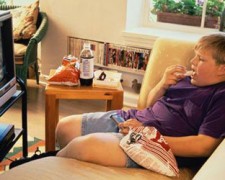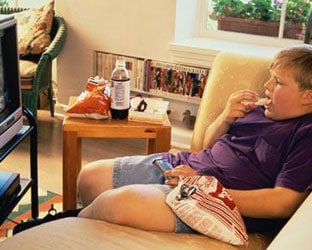 A quartet of US senators cited studies showing that a high percentage of the ads for unhealthy food seen by children can be traced to one source: Nickelodeon; and further, that the majority of ads seen on the network are for foods that fall into the unhealthy category. They would like for the practice to cease.
A quartet of US senators cited studies showing that a high percentage of the ads for unhealthy food seen by children can be traced to one source: Nickelodeon; and further, that the majority of ads seen on the network are for foods that fall into the unhealthy category. They would like for the practice to cease.
The senators are Richard Blumenthal (D-CT), Jay Rockefeller (D-WV), Tom Harkin (D-IA) and Dick Durbin (D-IL).
The numbers that have them worked up are these: According to a 2010 study by the Yale University Rudd Center for Food Policy and Obesity, Nickelodeon by itself is responsible for 25% of the unhealthy food ads seen by children. And in 2012, the Center for Science in the Public Interest found that 69% of the food advertising on the channel were for unhealthy items.
They also quoted a 2006 study that claimed the advertisement induce children to get their parents to buy the advertised items.
They sent letters to Viacom’s Philippe Dauman and Nickelodeon’s Cyma Zarghami requesting that the channel cease running such ads.
Stated Blumenthal, “Childhood obesity has doubled over three decades– reaching epidemic magnitude and a national crisis. We’re calling on Nickelodeon– the biggest source of food ads viewed by kids– to stop the pitches for unhealthy foods like sugary cereals and sweet snacks that are powerfully promoting childhood obesity. Nickelodeon should acknowledge its responsibility as the leading source of children’s entertainment to implement strong nutritional standards for food ads. Studies clearly indicate that children are influenced by these advertisements, and that Nickelodeon currently airs a full quarter of all food advertisements viewed by children under age 12. Nickelodeon has a responsibility, but also an opportunity, to make a positive difference in the health of children.”
It wasn’t all bad news for Nick. In the letter, they wrote, “We applaud the initiatives that Nickelodeon has taken to promote healthy lifestyles for children, including through health and wellness messaging, but remain concerned that Nickelodeon continues to run advertisements for food and beverage products of poor nutritional quality.”
Then they invoked the actions of a direct competitor. “One year ago last week, the Walt Disney Corporation took the important step of announcing that it would no longer accept advertisements for unhealthy foods on television, radio, and websites directed at children. Like other companies, Disney has found success in focusing their food marketing on healthy foods that contribute to the health and fitness of their viewers. Given Nickelodeon’s commitment to fighting childhood obesity and responsibility to the youth that comprise your audience, we ask that the company promptly take similar action to implement strong nutrition standards for all of its marketing to children. We look forward to your response.”
RBR-TVBR observation: The topic of advertising unhealthy items to our children has been relatively quiet in the US of late. But we know it was only a matter of time before it resurfaced. It’s one of the zombie issues in Washington. The last time it came up with any force, voluntary pledges were made by a number of organizations to adopt responsible advertising policies and things quieted down.
The voluntary effort helped to head off any legislative remedies, leaving Washington ripe for another go-around.
We have seen this issue simmering away in Europe of late as well, particularly in Ireland. Some countries ban this sort of advertising period.
Will Nickelodeon/Viacom set off another full-scale battle? Politicians love this sort of issue, where they score easy points by “protecting our children.” Companies, however, can also score easy points by taking the high road and earning respect and customers by touting their efforts to foster a healthy generation of children. As to whether or not the issue has legs, stay tuned.





